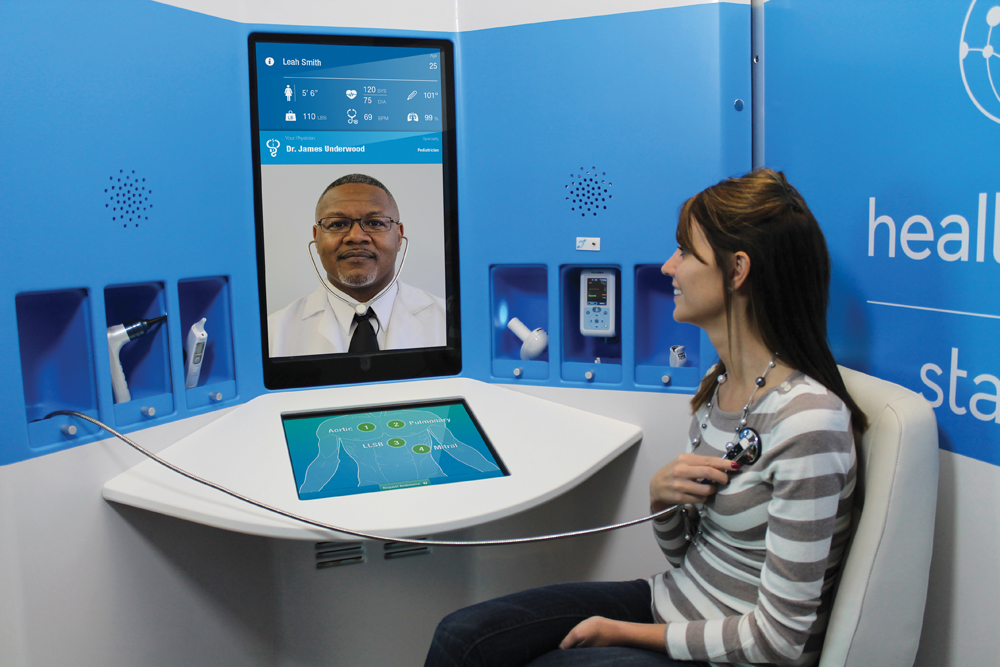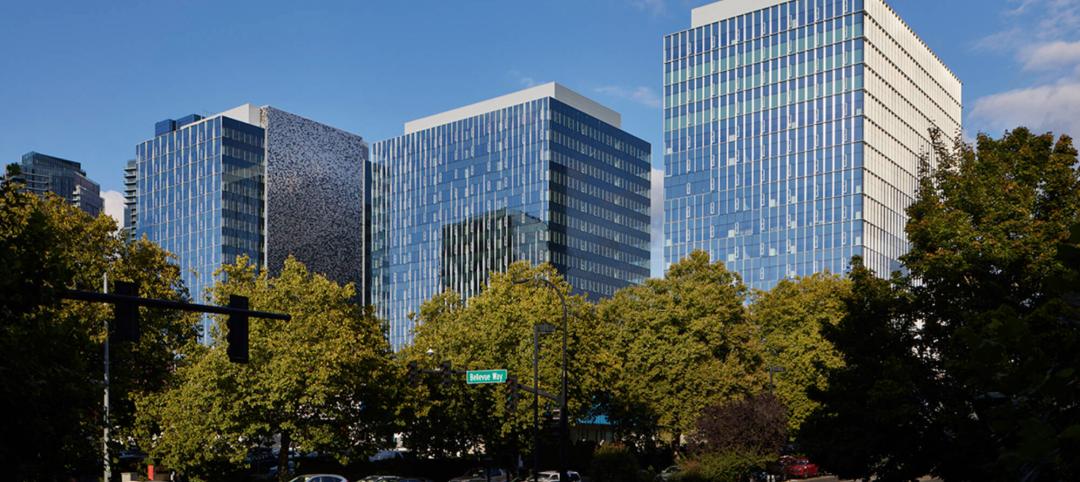The HealthSpot station is an 8x5-foot, ADA-compliant mobile kiosk that lets patients access a network of board-certified physicians through interactive videoconferencing and medical devices, such as stethoscopes, scanners, and thermometers. From that information, the remote doctors can make diagnoses and prescribe advice and medicine.
“We’re bringing the doctor to the patient,” says Steve Cashman, CEO and Founder of Dublin, Ohio-based HealthSpot, which launched its first station at the Consumer Electronics Show last December.
As of mid-October, about a dozen HealthSpots were in use. Eight healthcare systems in Minnesota, Miami, San Diego, and Ohio—including the prestigious Cleveland Clinic—were making caregivers available. Customers can be treated for common health conditions—colds and flu, rashes and skin conditions, eye conditions, earaches, and seasonal allergies.
On November 10, pharmacy chain Rite Aid announced that it had entered into an agreement with HealthSpot to install stations at select Rite Aid locations in the Akron/Canton, Cleveland, and Dayton/Springfield markets in Ohio.
The HealthSpot station was designed by Cleveland-based architectural firm Nottingham Spirk. Bill Nottingham, a Principal, says the station had to be portable, but not so small as to feel claustrophobic. An arched ceiling gives the pod some breathing room
Ohio-based Commercial Vehicle Group, a manufacturer of truck cabs, makes the stations. The units are shipped in pieces and reassembled on site. HealthSpot is providing the units to client locations for a one-time implementation fee to cover the installation, plus a monthly maintenance and licensing fee. Cashman estimates the stations are profitable when they handle at least six patients a day.
Cashman says he plans to place another 100 HealthSpots into the market in early 2015. He says he envisions them being installed on college campuses, in retail malls, and in assisted living facilities.
Read about more innovations from BD+C's 2014 Great Solutions Report
Related Stories
AEC Tech Innovation | Oct 8, 2024
New ABC technology report examines how AI can enhance efficiency, innovation
The latest annual technology report from Associated Builders and Contractors delves into how artificial intelligence can enhance efficiency and innovation in the construction sector. The report includes a resource guide, a case study, insight papers, and an essay concerning applied uses for AI planning, development, and execution.
Healthcare Facilities | Oct 8, 2024
Herzog & de Meuron completes Switzerland’s largest children’s hospital
The new University Children’s Hospital Zurich features 114 rooftop patient rooms designed like wooden cottages with their own roofs. The project also includes a research and teaching facility.
Mixed-Use | Oct 7, 2024
New mixed-use tower by Studio Gang completes first phase of San Francisco waterfront redevelopment
Construction was recently completed on Verde, a new mixed-use tower along the San Francisco waterfront, marking the end of the first phase of the Mission Rock development. Verde is the fourth and final building of phase one of the 28-acre project that will be constructed in several phases guided by design principles developed by a design cohort led by Studio Gang.
Brick and Masonry | Oct 7, 2024
A journey through masonry reclad litigation
This blog post by Walter P Moore's Mallory Buckley, RRO, PE, BECxP + CxA+BE, and Bob Hancock, MBA, JD, of Munsch Hardt Kopf & Harr PC, explains the importance of documentation, correspondence between parties, and supporting the claims for a Plaintiff-party, while facilitating continuous use of the facility, on construction litigation projects.
Glass and Glazing | Oct 7, 2024
Pattern language: An exploration of digital printing on architectural glazing
Architectural Glazing has long been an important expressive tool which, when selected and detailed thoughtfully, can contribute to the successful transformation of architectural concepts to reality.
University Buildings | Oct 4, 2024
Renovations are raising higher education campuses to modern standards
AEC higher ed Giants report working on a variety of building types, from performing arts centers and libraries to business schools. Hybrid learning is seemingly here to stay. And where possible, these projects address wellness and mental health concerns.
AEC Tech | Oct 3, 2024
4 ways AI impacts building design beyond dramatic imagery
Kristen Forward, Design Technology Futures Leader, NBBJ, shows four ways the firm is using AI to generate value for its clients.
Laboratories | Oct 2, 2024
Trends in scientific research environments: Q&A with Flad's Matt McCord
As part of an ongoing series, Matt McCord, AIA, NCARB, LEED AP BD+C, Associate Principal with Flad Architects, discusses the future of the scientific workplace.
Museums | Oct 1, 2024
UT Dallas opens Morphosis-designed Crow Museum of Asian Art
In Richardson, Tex., the University of Texas at Dallas has opened a second location for the Crow Museum of Asian Art—the first of multiple buildings that will be part of a 12-acre cultural district. When completed, the arts and performance complex, called the Edith and Peter O’Donnell Jr. Athenaeum, will include two museums, a performance hall and music building, a grand plaza, and a dedicated parking structure on the Richardson campus.
Data Centers | Oct 1, 2024
10 biggest impacts to the data center market in 2024–2025
While AI sends the data center market into the stratosphere, the sector’s accelerated growth remains impacted by speed-to-market demands, supply chain issues, and design innovation necessities.

















